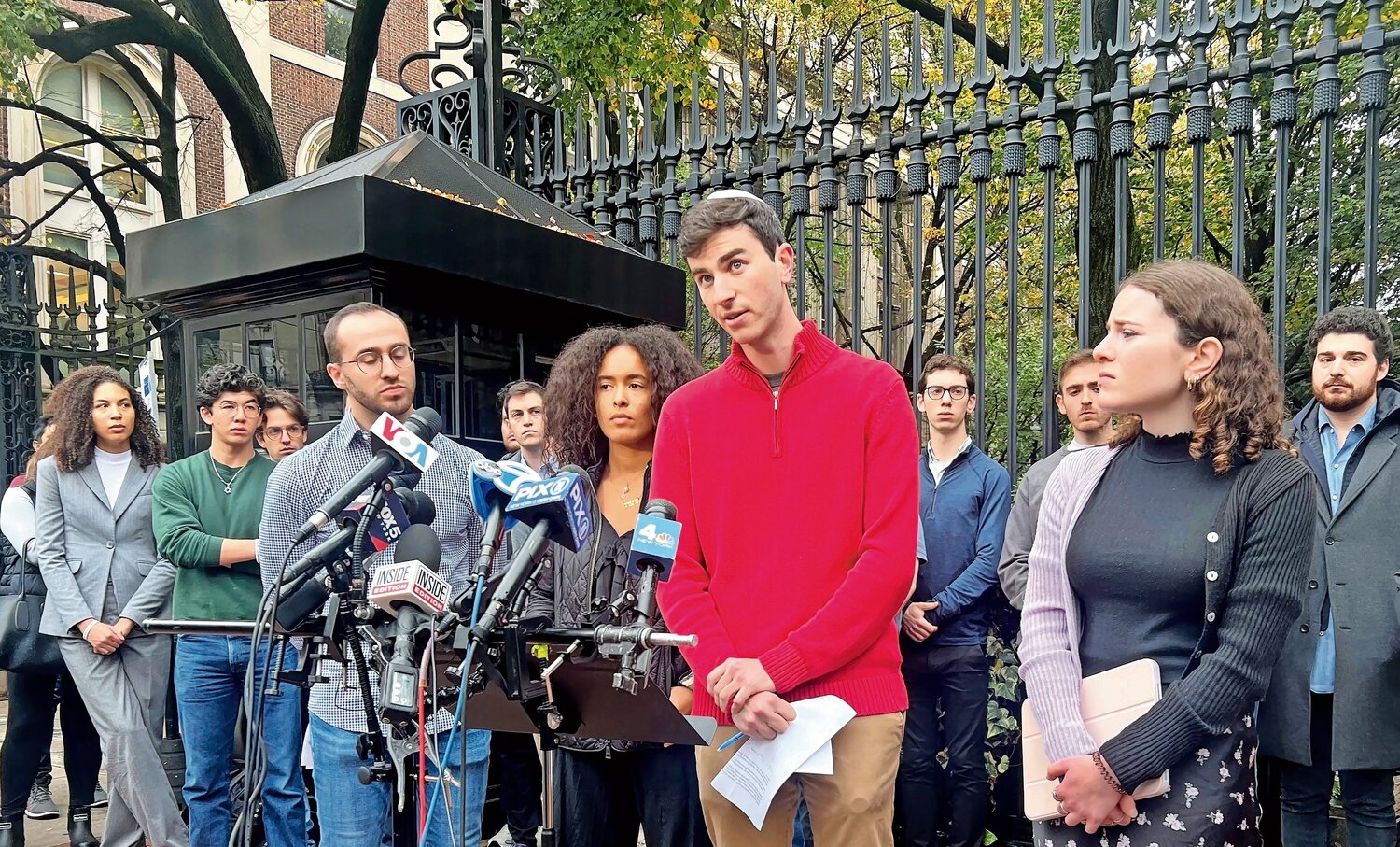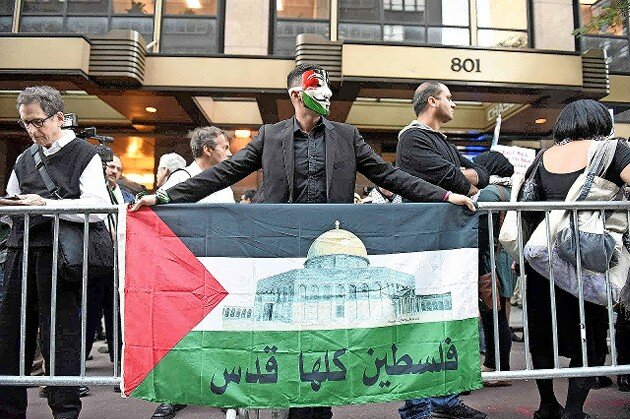CAMPUS HATE
Jews on American campuses share scary reality
“It’s only a matter of time before some tragic event happens to us.” This refrain has come up over and over again in conversations with Jewish students in the US following the Hamas terrorist attack on Israel on Oct. 7.
In recent days, with the intensification of Israel Defense Forces activity in Gaza, there has been a surge in pro-Palestinian activism on American campuses. As university presidents at prestigious institutions like Harvard and Columbia continue to refuse to unequivocally condemn Hamas’ terrorist attacks, there is growing legitimization given to a handful of violent students on campuses to attack those who support Israel, further deepening the divide between the progressive movement in the US and Israel.
Jewish students had no respite last week. In Washington Square Park, adjacent to New York University, a demonstrator held a sign that read “Please keep the world clean,” alongside a drawing of a trash can with a Star of David inside.
At New York’s Columbia University, the head of a pro-BDS student organization published an invitation to a gay film festival and emphasized that “It’s FREE PALESTINE over here. Zionists aren’t invited.” In an email circulated to organization members, she stated: “WHEN I SAY THE HOLOCAUST WASN’T SPECIAL, I MEAN THAT.”
A particularly disturbing incident occurred at Cooper Union College in New York: Jewish students barricaded themselves in the library while protesters demonstrated against Israel and banged on the library’s locked doors. The event only ended when police entered the scene and escorted the Jewish students outside the college.
“While students at Cooper Union have a right to peacefully protest, hate has no place in our city,” Mayor Eric Adams said after the incident.
Anti-Israel sentiments has entered classrooms, receiving support from some faculty members.
At the University of California, Berkeley, a lecturer in the course “Asian American Communities and Race Relations” offered students extra credit for “attending the national student walkout tomorrow against the settler-colonial occupation of Gaza” at the university, or “watch a short documentary on Palestine and call/email your local California representatives.” Students were required to submit a screenshot of their participation in one of these activities to receive the credit.
In the Middle East and Islamic Studies program at Columbia University, perhaps the most combustible place on campus, professors have asked students to read clearly pro-Palestinian material, including Rashid Khalidi, a professor of Modern Arab Studies known for his anti-Zionist views.
Ella Cheezik, who is pursuing a master’s degree in the department, said that classes have become battlefields.
“Students who study with me come to class after reading the incitement materials on the reading list, and in the end, they justify Hamas terrorism,” she says. “They say to me directly, ‘Why should we believe you and not Hamas? Show me pictures of decapitated children or raped women,’ but even if I show them, I’m not sure they’ll believe me. I feel that truth and facts no longer matter. It greatly troubles me that these students could be future influential leaders.”
She describes a growing sense of insecurity that Israeli students on campus share.
“I choose to express my opinion in class, and I know I’ll pay a price for it. I’m afraid to leave the classroom because I don’t know who’s waiting for me outside and what they might do to me. But nothing will deter me: I won’t stop telling Israel’s story.”
“I’m afraid of being a target for an attack,” says Omer, an Israeli student pursuing an MBA at Stanford. “I make sure to look over my shoulder, and I’m debating whether I should put a mezuzah on my dorm room door. The university administration is just walking on eggshells — it’s afraid to condemn in a clear and unequivocal manner.”
Omer notes that as the death toll in Gaza rises, anti-Israel sentiments on campus are strengthening, and the students’ fears are also shared by faculty members from Israel.
“There’s a sense of helplessness; we want to put out one fire after another, and it doesn’t end,” says Jonathan Levav, a professor of marketing at Stanford Graduate School of Business. “We are truly fighting for our lives here, with hate speech that I haven’t seen in 20 years in academia. The war in Gaza will end before the campus war. If we don’t win the battle here, the Jewish identity of the students will erode, and Jewish communities in the Diaspora will be harmed.”

 43.0°,
Partly Cloudy
43.0°,
Partly Cloudy 







